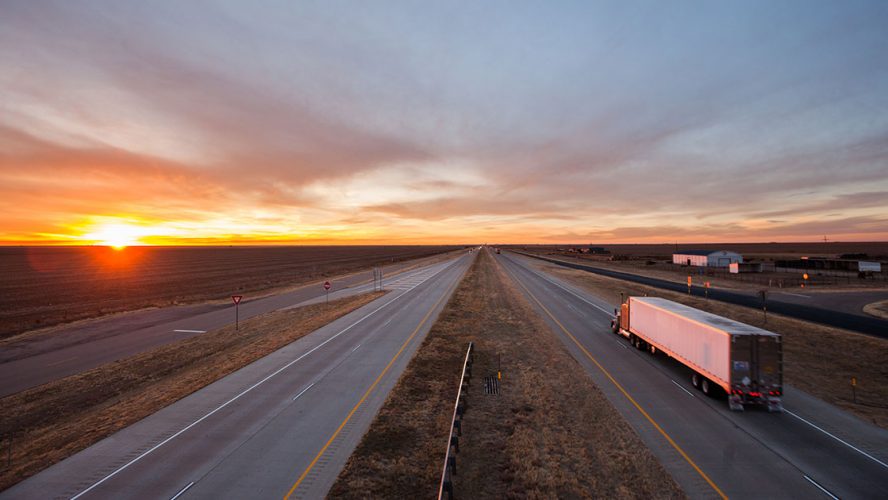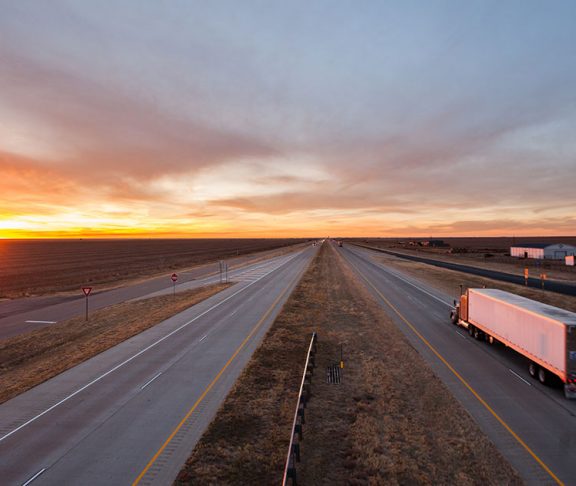The coronavirus pandemic was hard on everyone, and created particular hurdles for truck drivers in America with reduced access to food and hygiene.
None of us could have imagined the impact the coronavirus would have on all of us. Back in March, when the reality of the pandemic first set in, people were told to wash their hands, refrain from coughing, and, most importantly, to stay home.
But the need for food, gas, toilet paper, and cleaning supplies meant that America’s supply chain couldn’t stop. Instead, professional drivers were on the frontlines as essential workers, and their wheels kept rolling.
Finally, neighbors realized that tractor-trailer on the highway wasn’t just something in their way, it was delivering things they needed.
It wasn’t just life as usual for these drivers. They were suddenly faced with more significant and sometimes insurmountable physical and mental challenges each day. Because of cleanliness concerns, truck stops closed their restaurants, and some states shut down their rest areas. Shippers and receivers no longer allowed drivers inside their facilities to access food or toilets.
These drivers were often unable to access food, as fast-food restaurants only offered drive-thru service, which couldn’t accommodate a thirteen-and-a-half-foot high truck. Walking up to the window was also prohibited due to social distancing guidelines. Limited food accessibility and restroom restrictions added to the physical and mental distress.
Safety is a primary concern for all drivers, but even more of a priority for female truckers. When asked how safe they feel when doing their jobs, the average response, on a scale of one to ten, was only 4.4. That was before the pandemic.
Now, drivers are suffering stress caused by these and other issues many others don’t experience. The challenges aren’t just physical; they are often psychological. Their mental health was suffering because of the strain of not knowing what to expect around the next turn.
Since drivers were on the front lines, many of them were unable to go home to their families because they wanted to protect their loved ones. Many drivers had spouses with comprised immune systems or aging parents who were more susceptible to the virus. Others had young children, and they didn’t want to expose them to the germs potentially.
Because of the difficulty in obtaining healthy food options, many of our drivers suffered weight gain, which made the job even more challenging.
Limited restroom facilities made it harder for drivers to wash their hands, and the lack of running water meant an increased chance of suffering from dehydration.
Depending on the type of freight a driver hauled, he or she could be affected financially during the pandemic. Truckers who hauled trade show or entertainment equipment, automotive supplies, and restaurant and hotel provisions found themselves negatively affected. On the flip side, drivers hauling paper goods such as toilet paper or tissue, groceries, or retail store items were running harder.
At the Women In Trucking Association, we partnered with ESPYR, a behavioral health organization to provide counseling for our drivers. The Fit to Pass program offers guidance in staying physically healthy to maintain their required department of transportation physical certification. The TalkNow program gives drivers and their families 24-hour access to a mental health counselor who understands the challenges of a professional driver.
As we sheltered in place, our professional drivers kept the wheels rolling to deliver the milk, gas, food, and supplies we needed. They are truly our heroes, and we are proud to represent them. The next time you see a professional driver, thank her or him for their service as essential workers.

